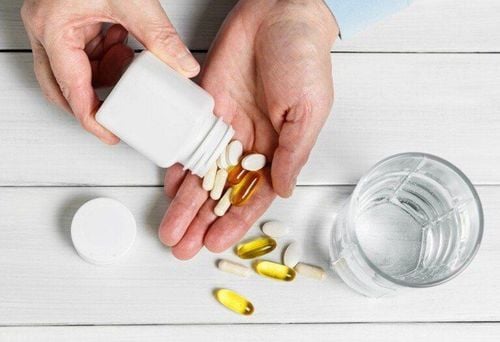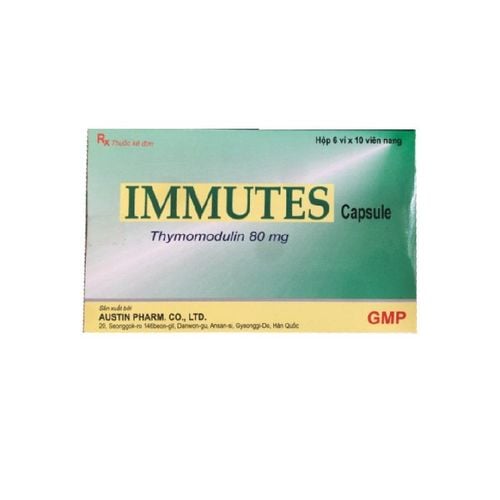This is an automatically translated article.
Protein is classified as an essential nutrient for the body. In addition to the function of building muscle mass, producing hormones ... for the body, protein also provides the body with many essential nutrients. From these benefits, should protein supplements be given to children? Can using protein supplements for children bring many health benefits? This article will delve deeper into this content.1. The role of protein for children
Protein plays a role in building muscle mass, helping in muscle formation, producing hormones, strengthening skin and bones, and transporting nutrients. However, nutritionists say that consuming more protein - especially protein supplements for children - is not necessarily healthy. And that's especially true for children. Providing too much protein in a child's diet can lead to long-term health problems.In addition, the fact that we add protein or add protein powder to food, shakes or smoothies can be seen as a popular trend among growing children and adolescents. You may notice this trend more if the child is physically active or maybe an athlete.
2. Daily Protein Needs
So how much protein is enough? According to the National Academy of Sciences, Engineering, and Medicine, 10% to 30% of your calories should come from protein. For younger children, the extra protein is broken down by age: Children 4 to 9 need 19 grams of protein per day. People between the ages of 9 and 13 need 34 grams.For teenagers, ages 14 to 18, the ratio varies by gender: Boys need 52 grams and girls need 46 grams.
Therefore, children can get enough protein each day if they eat two servings of milk, such as milk, yogurt, and cheese, and one or two servings of lean protein, such as lean beef, pork, or poultry. hold, fish. If your child is taking supplements that contain protein, the recommended daily requirement may be exceeded.
Scientists think that boys or children who are more active need more protein to provide energy for the body. These subjects burned more protein. These subjects should only supplement protein when participating in vigorous physical activity requiring protein supplementation and subjects should supplement only over 18 years of age.

Lượng protein cần bổ sung phụ thuộc nhiều vào độ tuổi, giới tính của trẻ
3. Dangers of Protein Supplements
Adding extra protein from supplements to your child's diet can cause long-term health problems, including:Weight gain: Excess protein means excess calories. If a child cannot burn calories, the body stores them as fat. Organ damage: High protein intake can cause kidney stones and make the kidneys work harder to filter wastes out. High-protein diets wear down the kidneys over time and contribute to dehydration. Protein processing also produces nitrogen in the liver. The high nitrogen content makes it harder for the body to process waste and toxins. High levels of nitrogen can also reduce the body's ability to break down nutrients. Problems for children with weakened immune systems : Protein supplements are not regulated by the Food and Drug Administration (FDA). Many products don't label all of their ingredients, so you don't know exactly what your child is consuming. Many protein powders contain stimulants or substances that can affect your child's immune system.
4. Time to add protein
There are special circumstances where a child may need additional protein in the diet. However, even then, a protein supplement or drink is not the best choice. Your child may need more protein if he or she is:Underweight : Offering supplements or protein shakes seems like an easy fix, but use caution. You should not give your child protein drinks just because he is underweight, nor should you use these products without consulting your pediatrician. Picky eater: What if your child doesn't like meat or just wants pasta or pizza? Children may then consume less protein than other children, but they will still be able to meet their nutritional needs. Vegan/vegetarian: Children who don't eat meat usually have lower amounts of protein. Children may need 10% to 15% more protein to get the same benefits as meat eaters. Children can use foods such as: Peanut butter, oatmeal and some vegetables such as peas, corn and spinach are good sources of protein for children. Children with metabolic conditions: Children with medical conditions that waste protein may also benefit from a higher protein diet. Remember though, real food - not protein supplements - is always better for a growing body, especially after a tough workout.
Teens and teen athletes are sometimes attracted to post-workout protein supplements. But kids need a combination of protein and carbs to rebuild muscle that's broken down during exercise.

Nếu bạn nhận thấy trẻ thiếu cân, bạn có thể bổ sung bột protein cho trẻ
5. How safe to use protein supplements
For children with a protein deficiency or another medical condition that prevents them from getting enough protein, protein drinks can be used to supplement the child's diet.However, there is still a lack of evidence supporting the benefits of protein powder for children with these conditions. In a 2015 review, researchers studied the evidence surrounding the effects of protein supplements in children with chronic conditions such as cystic fibrosis and cancer. These diseases often prevent children from getting adequate nutrition. This study found no significant improvements in weight, height or nutritional status. For most healthy children, a protein supplement is not necessary.
For children to be healthy and develop well, it is necessary to have a nutritious diet in terms of quantity and quality balance. If children are not provided with adequate and balanced nutrients, it will lead to diseases of excess or lack of nutrients, which adversely affect the comprehensive development of children in terms of physical, mental and motor skills.
Children who do not eat properly are at risk of micro-mineral deficiency causing anorexia, growth retardation, malabsorption,... If they notice the above signs, parents should supplement their children with products. The supplement contains lysine, essential micro-minerals and vitamins such as zinc, chromium, selenium, and B vitamins to help fully meet the nutritional needs of children. At the same time, these essential vitamins also support digestion, enhance nutrient absorption, help improve anorexia, and help children eat well.
Parents can learn more:
Signs of zinc deficiency in children
Micronutrient deficiency and failure to gain weight in children
Please regularly visit Vinmec.com website and update useful information to take care of your child. Take care of the baby and the whole family.
Reference source: health.clevelandclinic.org













